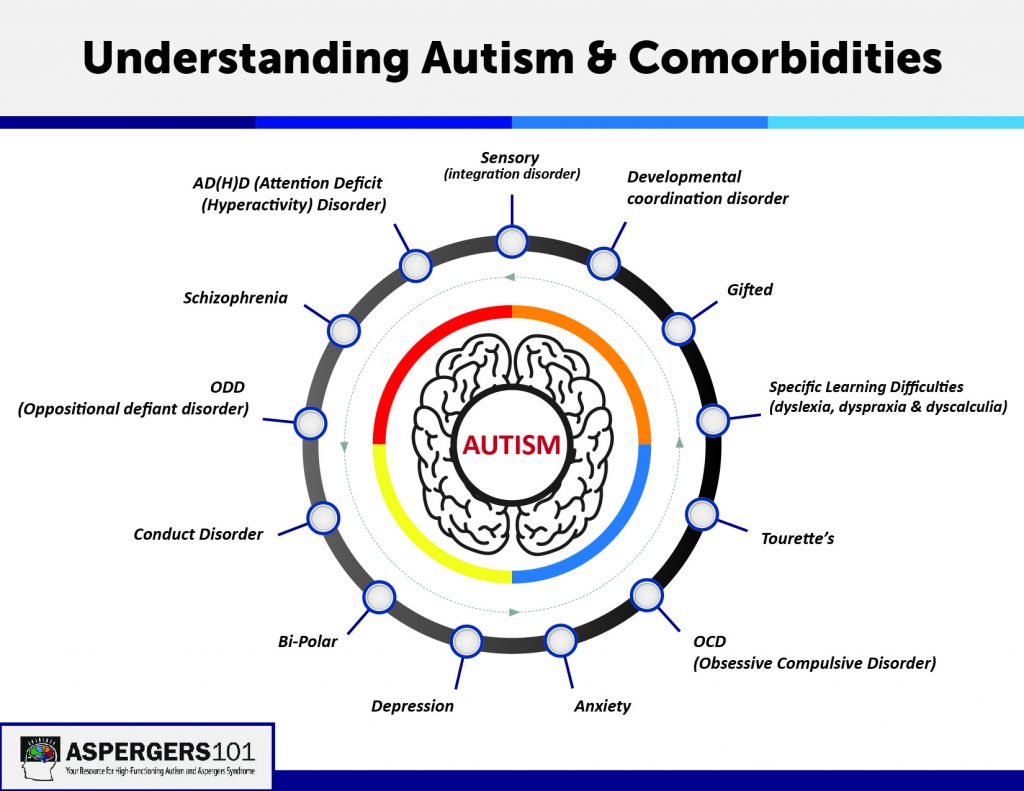As a mother of a son with Autism and founder of Aspergers101, I’m approached daily with questions. Some I consult with experts to respond and others, I know from living the role of a parent of a child with special needs.
Recently, the question was asked of me “Can you grow out of having Asperger Syndrome”?
While the answer seemed factually a swift no due to the brain’s wiring and you cannot change that, my response became layered from a very personal view.
Sam is now 23, driving, soon to graduate college and discussions of hopeful independence emerge daily. That one sentence sounds easy at first read but the road has been fraught with hurdles, heartache and sheer illumination into the world of Autism.

Sam’s brain is wired uniquely as the frontal lobe doesn’t receive the proper ‘firing’ to understand all forms of communication. Vague innuendos, sarcasm or office politics escape him completely as does the innate sense of social cues and proper attire. Medically speaking it is the fusiform gyrus blocking the signals to social cues and communication that neurotypicals utilize on a daily basis. That medical fact won’t change. So can you grow out of Asperger Syndrome as asked by the parent of a newly diagnosed child? I answer this carefully as I can clearly put myself, all those years ago, in the same frame of mind. What you are really asking is, “Will my child be alright? Will they overcome the bleak future the doctor just pinned on us? Will I be the caregiver always? Will this diagnosis go away? Bottom line: you are searching for hope.
My response to this routine question is: You may not grow out of Asperger Syndrome, but you can grow into it. Think about that and recalibrate your thinking toward your child (or yourself!) and the diagnosis.
While I realized early on that Sam will always be wired uniquely, he is equally gifted where others are not. School, peers and judgemental onlookers may have had their definition of success but I formed my own based on Sam’s perspective and strengths. Yes, behaviors can be learned by therapies and treatments but don’t think this is the rise or fall of a person diagnosed with Autism. In other words, once you teach basic manners such as shaking someones hand (and how to do it properly), looking someone in the eye (if only for a few seconds) and basic social skills (mandatory) then you can focus on what sets them apart.
There is an excellent read from Dr. Gail Saltz titled, The Power of Different. In this book Dr. Saltz delves into the challenges and gifts of those whose brain is wired differently. We asked Dr. Saltz for an overview of her studies and we are please to offer the following video from her clinical findings on the Autistic mind.
Of course there are the on-going challenges you must face head-on. Comorbidities, as mentioned above, are typically what challenge the person with Autism more than the Autism itself.
Once diagnosed on the spectrum, you can expect one, two or possible more comorbidities to reveal itself at various stages in life. For instance, we knew Sam had Autism, ADD (attention deficit disorder) and anxiety at the end of 3rd grade, but it wasn’t until he hit the high school years that OCD (obsessive compulsive disorder) reared it’s challenging head. All these have been an ongoing effort by way of therapy, mild anti-anxiety meds and quite frankly, continual self treatment. Below is a diagram that reveal the wide array of comorbidities that one might face with ASD.

I will leave you with a quote from Sam when asked how he feels living his life with the diagnosis of Autism/Asperger Syndrome:
When growing up you are going to realize that autism won’t’ seem as prominent as it used to be during the challenging school-age years. I realize I have my challenges and my gifts. It’s not like the autism is going away, it’s always going to be a part of who I am. However knowing that I can overcome these challenges assures me I can face the future head-on. -Samuel Allen
I feel my son has grown into and beyond his diagnosis.
Sam is not defined by Asperger Syndrome nor any of the other titles medically given to him, he proudly goes into adulthood as Samuel Dale Allen and that’s more than good enough.
by: Jennifer Allen
A graduate of Abilene Christian University, Jennifer had a long career in TV Broadcasting. Upon learning her oldest son Sam had a form of Autism called Asperger’s Syndrome, she left her career and became a full-time mother to both of her sons. Jennifer elicited the participation of her family and together they produced several independent programs including a children’s animated series titled Ameriquest Kids, as well as a documentary and book titled, Coping to Excelling: Solutions for School-age Children Diagnosed with High-Functioning Autism or Aspergers Syndrome. She formed the nonprofit Asperger101 to provide on-going free resources related to ASD at Aspergers101.com and has implemented the Texas Driving with Disability Program and continues to grow the statewide initiative today. She and her husband have recently retired to their property in the Texas Hill Country.

